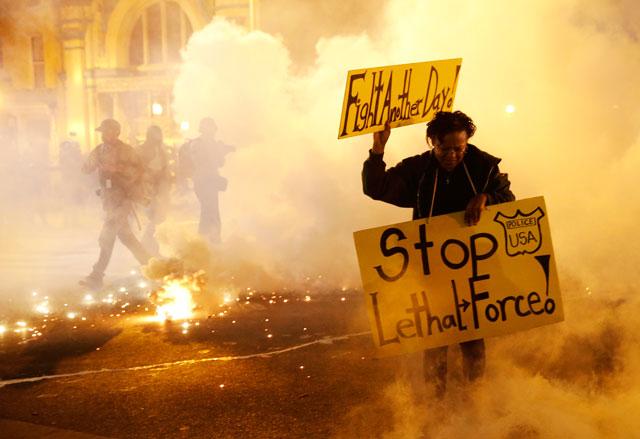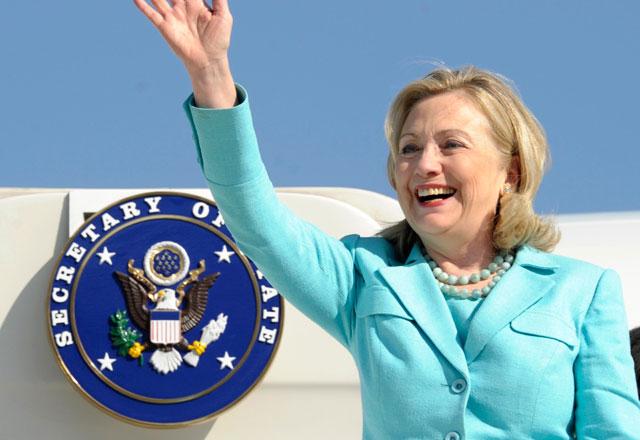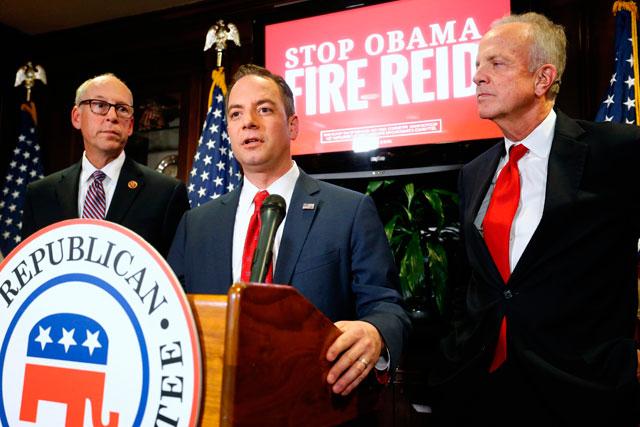You are here
Baltimore shows justice system ‘out of balance’ — Clinton
By AP - Apr 29,2015 - Last updated at Apr 29,2015

NEW YORK — Hillary Rodham Clinton said Wednesday that the US criminal justice system has gotten "out of balance" and must be restored through steps such as the use of body cameras by every police department in the country.
"It's time to change our approach," Clinton said in her first major policy address since launching her presidential campaign earlier this month. "It's time to end the era of mass incarceration."
Clinton spoke in the days after violence and protests have swept through the streets of Baltimore following the death of Freddie Gray, a 25-year-old black man who suffered a spinal-cord injury while in police custody. Clinton condemned those instigating further violence, saying it disrespected the Gray family and only compounded the tragedy.
"The violence has to stop," she said in a speech at Columbia University.
Clinton is the leading contender for the Democratic nomination for president in 2016. On the Republican side, the favourites are considered to be former Florida Gov. Jeb Bush, Wisconsin Gov. Scott Walker and Florida Sen. Marco Rubio.
In her speech, Clinton spoke of protests over policing in Ferguson, Missouri; Charleston, South Carolina; and in New York, and repudiated policies dating to her husband Bill Clinton's presidency that lengthened prison terms while putting more officers on the streets. "We need a true national debate about how to reduce our prison population," she said. "We don't want to create another incarceration generation."
Clinton said federal funds for local and state law enforcement should not be used to buy "weapons of war" and said every police department in the country should have body cameras "to record interactions between officers on patrol and suspects. That will improve transparency and accountability. It will help protect good people on both sides of the lens”.
She voiced support for alternative punishments for lower-level offenders and the need to address substance abuse and mental illness, which she said came up repeatedly during her recent campaign trips to Iowa and New Hampshire.
Clinton also cited what she described as an "unmistaken and undeniable" pattern of violence against unarmed black men in the country and the unfairness of black men being more likely to be stopped and searched by police officers, charged with crimes and sentenced to longer prison terms.
"We have to come to terms with some hard truths about race and justice in America," Clinton said.
Criminal justice reform, however, should not be placed in a silo and separated from a lack of economic and educational opportunities in many communities, Clinton said. And many people suffer the consequences of roughly 1.5 million "missing African-American men" who are imprisoned, making them unable to care for their children or provide for their families.
"We can't separate the unrest we see in our streets from the cycle of poverty and despair that hollowed out those neighbourhoods," she said.
Clinton said criminal justice reform had found some bipartisan consensus in Congress, noting the work of Kentucky Sen. Rand Paul, a Republican seeking his party's presidential nomination, along with that of New Jersey Sen. Cory Booker, a Democrat.
"It is rare to see Democrats and Republicans agree on anything today but we're beginning to agree on this," she said. "We need to restore balance to our criminal justice system. Of course it is not enough just to agree... we actually have to work together to get the job done. We have to deliver real reforms that can be felt on our streets."
In December, President Barack Obama asked Congress for $263 million for police body cameras and additional law enforcement training. The request came after Obama held a series of meetings with law enforcement officials, Cabinet members and civil rights leaders following the death of 18-year-old Michael Brown in Ferguson.
The president's proposal would have allocated $75 million over three years to help states purchase body cameras. The money would have paid for about 50,000 devices, though Congress never acted on the president's request.
Related Articles
Hillary Rodham Clinton has jumped back into presidential politics, making a much-awaited announcement she will again seek the White House in 2016 with a promise to serve as the "champion" of everyday Americans in a country with growing income inequality.
President Barack Obama faces the prospect of a turbulent final two years in office after Republicans stormed to power in the US Senate, extended their majority in the House of Representatives in a midterm election that was a clear repudiation of the president's leadership.
One week on from an earthquake that killed more than 6,700 people, Nepal ruled out finding more survivors buried in the ruins of Kathmandu Saturday despite relatives refusing to give up hope.














